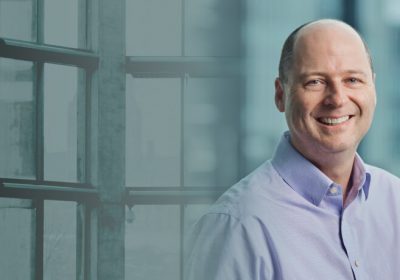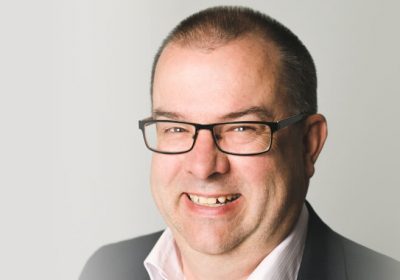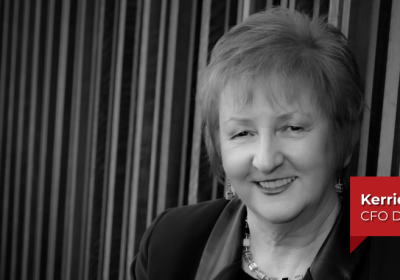
- Author: Nina Hendy
- Posted: April 19, 2022
Phil Halbish Spills the Beans on the Toilet Paper Business
Phil Halbish worked in the newspaper industry some years ago, leading the finance team through a major period of change in the media industry as the rivers of gold started to dry up for major publishers.
As digitisation sped up, he made the leap with many others, where he thought he would remain for the rest of his career.
But by chance, he spotted a job ad for a role back in the paper business – but this time, toilet paper. Instantly, he knew it was going to be a dream role for him.
But this isn’t just any toilet paper business. Who Gives a Crap is best described as a new generation business with a genuine social purpose.
The company ships to 36 countries and donates 50 per cent of its profits to help improve sanitisation and build toilets in developing countries.
In the 2021 financial year, Who Gives A Crap donated $2.5 million and in total, the toilet paper disrupter had given away more than $10 million to date.
The pandemic has been kind on the company, boosting a strong growth in sales in the 12 months to June 30 as toilet paper became the most-have item to be hoarded by Australians.
The Melburnian, who joined the company late last year as the first CFO in the role, has been settling into the role and looking for ways to balance profit with purpose.
“Once I escaped the News Limited presses I didn’t think I would be back around paper much, but here I am,” he says.
“One of the things I love about Who Gives A Crap is their big hairy audacious goal. Having a central purpose helps your business be more successful, which means you can then serve your purpose,” he says.
The company employs 170, with five specifically in the finance team. “As a CFO, in my mind, if you’re not making money, then it’s very hard to give it, and do the things you want if you’re not running a good organization yourself.
“Being the first CFO stepping into a role allows you to put your stamp on what the role looks like. I like the process of improving systems, analysing structures, taking things apart and putting them back together, and implementing new systems and processes,”
Phil Halbish, CFO | Who Gives a Crap
The Halbish story
The dream for Halbish had been to play cricket for Australia, but a fairly serious back injury that ended his cricketing aspirations. “I was on the fringes of the Victorian squad, and was serious about cricket, but it wasn’t going to be,” he says.
But he has no regrets, focusing on his career instead.
His father, also in accounting, had spent 19 years at Cricket Australia, finishing up in 1997, which gave Halbish unique and up-close exposure to both cricket and accounting.
“We used to have backyard barbecues with the Australian cricket team in the early 80’s growing up. It was pretty cool,” he says.
While at university, he secured a part-time join an accounting firm, working a couple of days a week, setting him on his journey.
Early on, he realised the importance of qualifications, knuckling down and fast-tracking his CPA qualifications as he surveyed the accounting landscape for an opportunity with a larger firm to learn the craft.
He accepted a role with KPMG, where he also studied for his Chartered Accountancy. “I did a lot of study in a short period of time, which has held me in good stead.”
He spent some time in newspapers, as the finance director of the Geelong Advertiser, then stepping into a role with financial planning and analysis role with News Corp in Melbourne. “I was there during a shake-up of the media industry, when the rivers of gold were starting to run dry,” he recalls.
A year later, he accepted a role as the CFO of the Global Corporate Challenge which later became an international division Richard Branson’s Virgin Pulse, offering solutions to maximise employee engagement and performance initiatives.
It was a phenomenal experience, with the company growing from 70 employees to well over 1,600 when he left six years later. He had been part of the team that grew the business into 130 countries, changing the lives of millions every day through the platforms it built.
Six years later, he accepted a role as the CFO of branded content platform TRIBE, opening his eyes to the possibilities that digital businesses present. He’s also offering his experience and expertise in an advisory role in the digital and fashion space.
He spotted the ad for the role of CFO at Who Gives A Crap by chance, but instantly knew he wanted to throw his hat in the ring. “This job was me on a page. It was exactly what I wanted to do, it’s such an amazing company.”
He recalls: “It was amazing to find an organisation helping society and helping people get healthier by gaining access to clean water and a toilet.
“Toilet paper is the conduit to creating an environment in some countries where they need access to clean water and toilets to save lives. The fact that the founders saw this as an opportunity is kind of incredible.
“I’m very happy to be in the toilet paper industry, because it just makes so much sense as a social enterprise. I knew right away that I wanted to take everything that I’ve learned and work hard to help. That’s been my real motivator. I enjoy the challenge of doing difficult things.”
Making his mark
Interestingly, it’s the third time he’s stepped into an organisation hiring a CFO for the first time.
“Being the first CFO stepping into a role allows you to put your stamp on what the role looks like. I like the process of improving systems, analysing structures, taking things apart and putting them back together, and implementing new systems and processes,” he says.
“It sounds self-indulgent of me to say, but I just like to help. My biggest driver in my job is helping.”
Working smarter
One of the interesting things about being a CFO is that whether the numbers or good or bad isn’t a direct reflection on whether or not you’re doing a good job. “At the end of the day, you’re just reporting on the fact that other departments have or haven’t done as well as they would have liked. In the past you kind of just sat in the middle, although I don’t think that should apply anymore.
He believes that the finance sector needs to look at ways to become more entrepreneurial, he says.
“There are systems, processes and automation that can get the job done, so CFOs need to step out of that and look for ways to grow the business. We need more entrepreneurial people in finance teams able to take care of the transactional processing piece and also able to help the business make better decisions based on their financial data and insights.”
He adds: “There are a lot of great systems out there, but no one system will do everything you need in your business. In the end, if you’re inputting bad data, and you don’t use your systems properly, there’s not going to be much value in it.”








